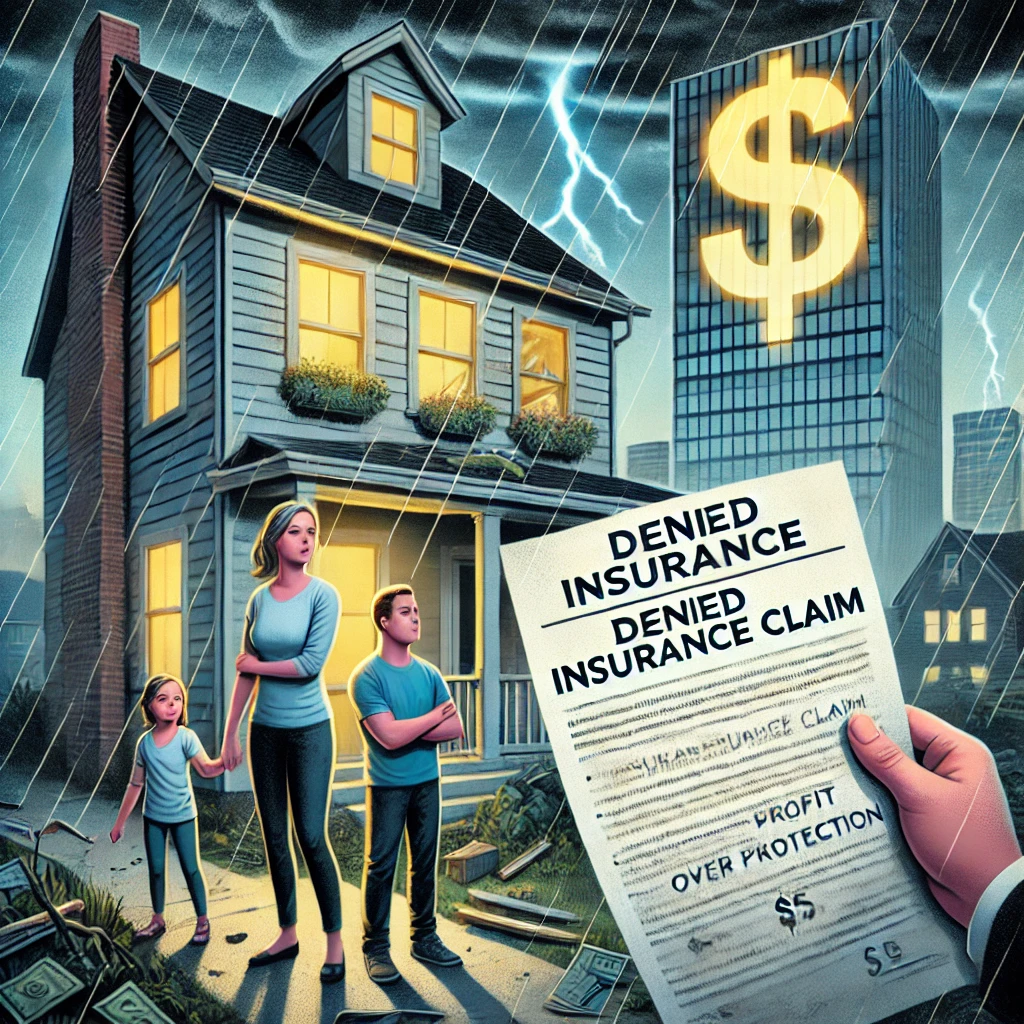The insurance industry is built on the promise of security and protection during life’s most challenging moments. However, growing concerns about unfair practices, increasing premiums, and denied claims have left many policyholders questioning whether their insurers are truly on their side.
Rising Premiums, Declining Coverage
Over the past decade, insurance premiums have risen steadily, often outpacing inflation. While insurers argue that these increases are necessary to address the rising frequency and cost of disasters, policyholders are seeing a troubling trend: coverage is shrinking.
For example:
- Higher Deductibles: Many insurers now impose higher deductibles for claims related to natural disasters like hurricanes, floods, and wildfires.
- Exclusions on the Rise: Standard policies often exclude critical events, such as flooding, forcing policyholders to purchase additional coverage at a premium.
These changes leave consumers paying more for less, often bearing a greater share of the financial burden when disaster strikes.
The Claim Denial Cycle
One of the most significant frustrations for policyholders is the claim process. Reports suggest that insurers are increasingly using tactics to minimize payouts, including:
- Overly Strict Documentation Requirements: Insurers may delay claims by repeatedly asking for additional documents or evidence.
- Vague Policy Language: Ambiguous terms in policies allow insurers to interpret coverage in ways that favor denial.
- Low Settlement Offers: Even when claims are approved, payouts often fall short of the actual cost of repairs or replacements.
Disasters Expose Systemic Issues
Natural disasters often highlight the weaknesses in the insurance system. For instance:
- After hurricanes and wildfires, thousands of policyholders report delayed payouts or outright denials.
- Government agencies often step in to provide financial relief, essentially subsidizing the responsibilities that insurers fail to meet.
The Human Cost
The financial strain caused by denied claims and rising premiums is just one side of the issue. Policyholders also experience emotional stress, as they struggle to recover from disasters without the promised support from their insurers. For families facing major losses, these challenges can feel insurmountable.
Holding Insurers Accountable
There is a growing call for the insurance industry to prioritize fairness and transparency. Policymakers and consumer advocates are pushing for reforms, including:
- Stricter Regulation: Enforcing clear guidelines for claim handling and requiring insurers to justify denials.
- Improved Policy Clarity: Ensuring that policy terms are easy to understand and do not contain hidden exclusions.
- Enhanced Consumer Protections: Providing policyholders with more resources to dispute unfair claim decisions.
What Policyholders Can Do
While systemic changes are necessary, individuals can take steps to protect themselves:
- Shop Around: Compare multiple insurers to find those with a strong reputation for fair claims handling.
- Understand Your Policy: Read your policy thoroughly and ask questions about any terms that are unclear.
- Document Everything: Keep records of all communications and receipts related to your claim.
- Seek Professional Help: If a claim is denied unfairly, consider hiring a public adjuster or consulting an attorney.
Conclusion
The insurance industry has a critical role to play in providing stability and protection during crises. However, without greater accountability and consumer-focused reforms, policyholders will continue to face undue financial and emotional hardships. It’s time for insurers to fulfill their promises and put their customers first.

